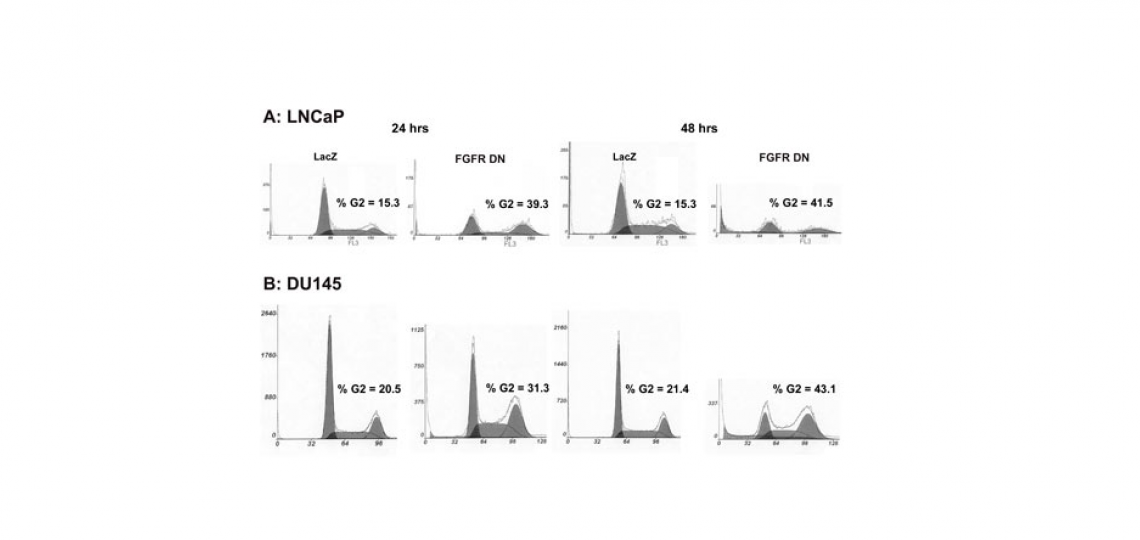To determine the biological significance of FGF receptor (FGFR) activation in human prostate cancer, we disrupted FGF signaling by transfection of dominant negative FGFR in a vector containing a hygromycin resistance gene. The dominant negative FGFR construct inhibited colony formation after hygromycin selection by over 99 percent in all three cell lines compared to vector controls. To determine the mechanism of this profound inhibition of colony formation we constructed replication-deficient adenovirus vectors expressing dominant negative FGFR and infected LNCaP and DU145 prostate cancer cells. Infection with the dominant negative FGFR expressing adenovirus led to extensive cell death. Surprisingly, flow cytometry and cytogenetic analysis revealed that the dominant negative FGFR receptor led to arrest in the G2 phase of the cell cycle prior to cell death in both cell lines. Western blot analysis of dominant negative FGFR infected cells showed accumulation of cyclin B1 in treated cells while cdc2 kinase activity was decreased. This implies a failure to form or activate cyclin B1/cdc2 kinase complexes in such cells.
These findings reveal an unexpected dependence on FGF receptor signal transduction for prostate cancer cells to traverse the G2/M checkpoint and ultimately for cell survival. We are seeking to understand the mechanism by which loss of FGF signaling leads to G2 arrest and cell death in prostate cancer. Current efforts are focused on the role of CDC25c in the observed G2 arrest. We are also using an expression microarray based approach to explore the mechanism by which G2 arrest occurs in response to loss of FGF signaling.
Finally, we are testing the use of dominant negative FGFR and small molecule inhibitors of FGF signal transduction as therapeutic modalities in mouse models of prostate cancer.

Cell cycle analysis of prostate cancer cells expressing
dominant negative FGF receptor.
Publications
Ozen M, Giri D, Ropiquet F, Mansukhani A, and Ittmann M. 2001. Role of fibroblast growth factor receptor signaling in prostate cancer cell survival. J. Natl. Canc. Instit. 93: 1783-1790.
Giri D, Ropiquet F, and Ittmann M. 1999. Alterations in expression of FGF2 and its receptor FGFR-1 in human prostate cancer. Clin. Canc. Res. 5: 1063-1071








